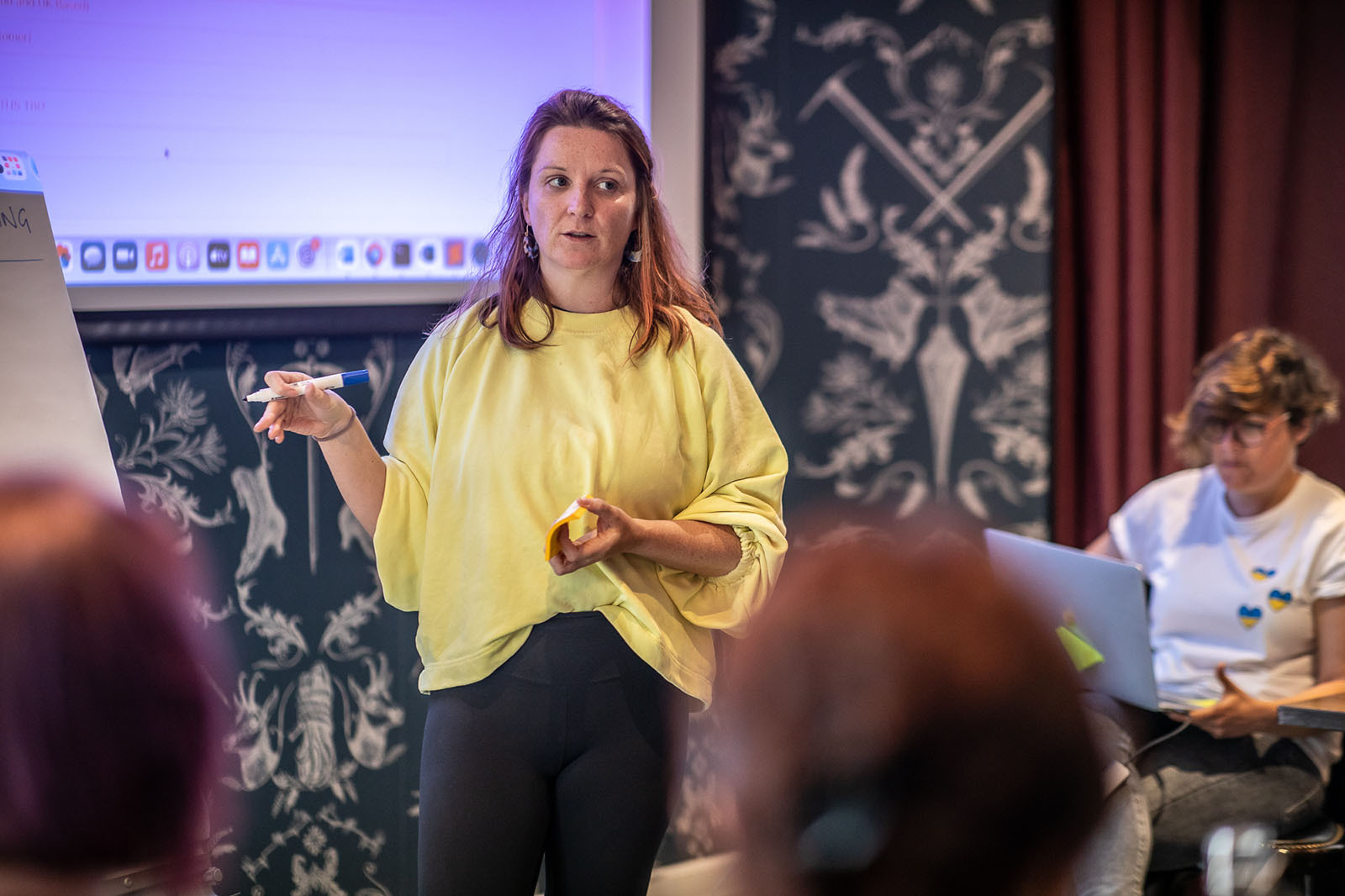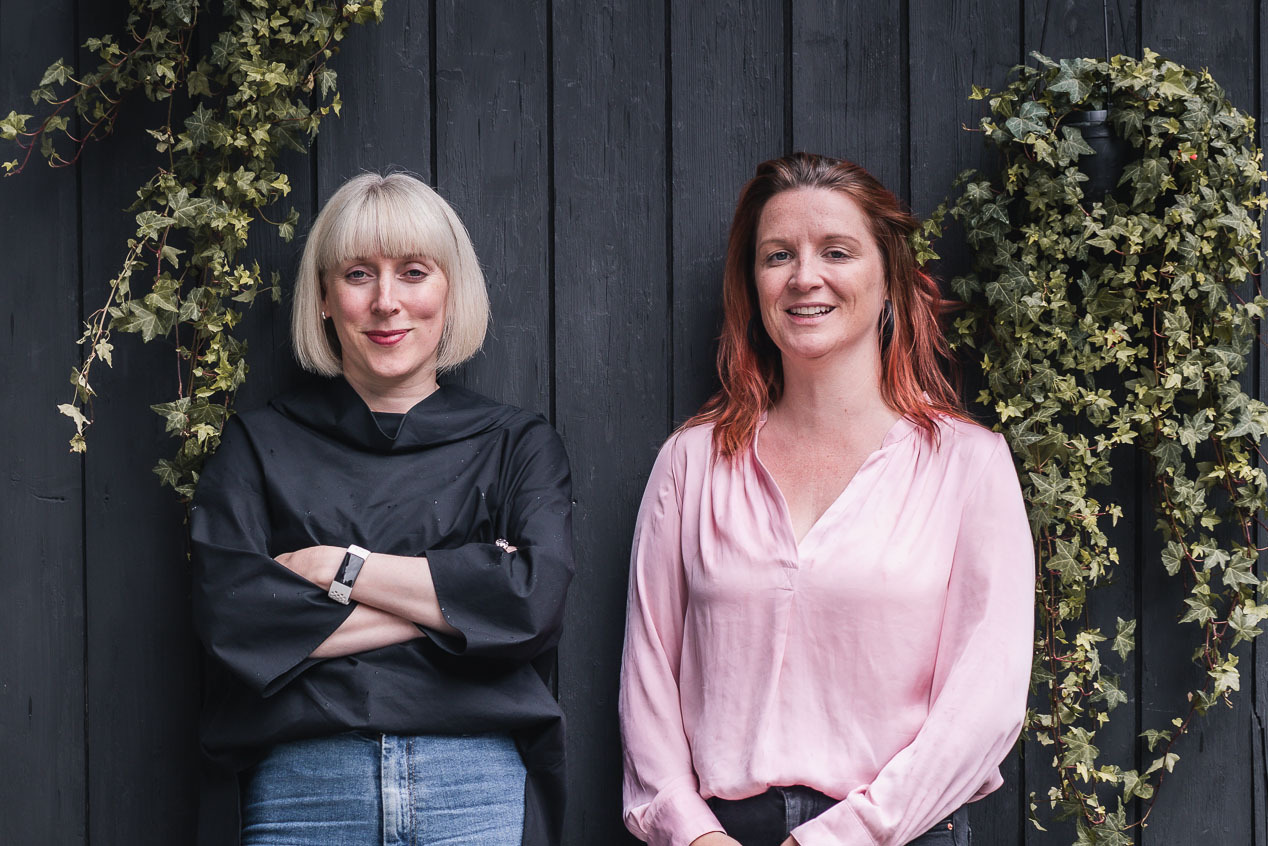In 2015, Emily Castles decided she wanted to work from France—and became a compliance nightmare for her COO, Dee Coakley. It turned out that cross-border remote work was a hidden opportunity. Dee and Emily co-founded Boundless HQ to help talented people work together, no matter where they happen to live.
When COVID-19 made remote work a necessity rather than a privilege, the chaos began. Office workers migrated from cities to mountain villages, beach towns, and childhood homes, and sometimes across borders. Van life boomed. Most employers had no idea how much of a compliance mess this would become. But Dee Coakley and Emily Castles, co-founders of Boundless HQ, certainly did.
In 2019, they founded Boundless so employers could build distributed, global teams, with employees able to live and work wherever they choose. Their software automates international payroll, benefits management, and tax compliance, which normally require an army of lawyers and accountants. They have now raised $5 million in funding and serve clients that include Code Institute, Airbotics, Cloudsoft, and other high-tech firms.
In the prototypical startup story, the co-founders get firsthand experience with a problem and decide to solve it together. The story of Boundless is like that but with a twist: Emily Castles was Dee Coakley’s problem.
It began in 2015 when Emily, a software development consultant based in Dublin, Ireland, pitched her employer on working remotely from France for a ski season. They said no.
But, with the consultancy’s blessing, Emily went to one of her clients, Bizimply, a workforce management platform that had been courting Emily for years. She told Bizimply that she’d join if they allowed her to work from France for a ski season—and work a four-day work week. No problem, they said, and foisted the problem on Dee, their Chief Operating Officer.
Emily was genuinely “intimidated” while asking Dee to set this all up. Sure enough, “It was an absolute nightmare,” recalls Dee, who started reading up on payroll, benefits, and other compliance issues for France-based employees. Dee did her best, and off went Emily to the French Alps. Dee figured Emily’s relocation would be a one-off ordeal. She was quite wrong.
Dee and Emily were both born in rural Ireland, which seemed to instill in them wanderlust and a reverence for autonomy. Dee, raised in the town of Roscommon, saw two starkly different models of work. Her mother followed her interests, which included owning a clothing store and working for the local newspaper. Her dad worked for the Bank of Ireland and hated it. He retired young to focus on music, his real passion.
“I always say my dad had a job, but my mom had a career,” notes Dee. After university in Dublin, she found herself in London pursuing not a job, but a career in music marketing serving musicians ranging from Beyoncé to Morrisey to Wu-Tang Clan. Although Dee loved the work, it was a chaotic sector with limited opportunities for advancement; most people left the industry at age 30, as did Dee. She saw better opportunities in tech and, eventually, landed at Bizimply.
Emily, raised in Summerhill, grew up hanging out at the pharmacy where her mother had worked since age 13. A natural at math and physics, Emily became a civil engineer but couldn’t stand 9-to-5 work in bland business parks. Moreover, her sister, a veterinarian, was taking lucrative temp gigs to fund her travels around the world. Emily wanted some of that. She took a coding course and pivoted to software development so she could work from wherever. Or so she thought.
Emily’s French compliance mess became history for Dee, at least until 2016 when she joined Axonista, a mobile video startup in Dublin. To Dee’s surprise—and torment—she became responsible for collocating engineers and data scientists at Axonista’s Dublin office. Of course, many candidates couldn’t or didn’t want to move and needed to work in their home country. “And that was when I started to have to actually solve these problems,” says Dee.
To call the process complicated would be a massive understatement. Dee had to retain lawyers and accountants in foreign countries and often relied on employers of record (EORs), which use local entities to legally “employ” people on behalf of their clients, who manage the worker. “The experience was absolutely awful,” she recalls. “It took over a year to set up in some countries.”
It also created tension between Dee and colleagues who needed talent ASAP. They couldn’t believe it took eight months to set up a French entity. But that’s how France worked. The paperwork was actual paper. The files were in real filing cabinets.
There had to be a better way of doing international employment. Dee reached out to her network of fellow chief operating officers, and all of them said no, there isn’t. It was a nightmare for them, too. Dee’s challenge started to sound like a startup idea.
Early in 2019, Dee left Axonista to begin the legwork on an EOR startup that could simplify global hiring. By spring, she had a good sense of what to build. That’s when Dee reached out to Emily, Bizimply’s star developer who’d introduced her to this messy problem in the first place.

Emily had decided to leave Bizimply with no plan (her modus operandi) and cycle across Europe, visit Morocco, etc. Moreover, Emily didn’t necessarily want to be a founder. Building software was one thing; it was consistent with her life goal to “maximize flexibility at work,” as she puts it. But managing people exhausted her. She was a no.
After her cycling trip, though, and another meeting with Dee, Emily started to reconsider: “If I’m ever going to do [a startup], this is the thing, right?” Having worked for startups, Emily knew to be skeptical, and maybe even cynical. Yet she had “absolute confidence in the idea,” she says.
Indeed, Emily had designed her life such that she could live and work from anywhere. “The serendipity of it spoke to me massively, which I don’t think has happened very often in my life. It just felt like everything aligned here.” Deep down, Emily wanted to work for a fully distributed company and help other people enjoy freedom of location. Check and check.
In October 2019, Dee and Emily raised a pre-seed round. Boundless then built its EOR solution to manage employment, payroll, and benefits for workers in multiple countries. Instead of spending months working with lawyers and accounts to figure it out, companies could just use Boundless to hire and pay people straightaway. Boundless launched the first version of its platform in spring 2020, just as remote and distributed work was gaining momentum amidst COVID-19.
“It was a tough time because most companies were not actually focused on compliance,” says Dee. No employer wanted to approve, decline, or manage remote work. The less they knew, the better. Eventually, though, companies realized that remote work was a serious compliance and tax liability, especially if employees worked across international borders, unbeknownst to their employer. Boundless won its first customer in June.
Soon, the traction convinced Dee and Emily that it was time to raise more capital. Through London-based Ada Ventures, a frequent collaborator with FYRFLY Venture Partners, they met Julie Maples in autumn 2020. Different from most Silicon Valley VCs, FYRFLY had a presence in Europe and the ability to bridge the US-EU gap.
“Julie was just an extremely warm person,” says Dee. “She was very human, very personable. It was very easy to build a relationship with her.”
FYRFLY and Ada Ventures co-led the seed round in Boundless. The funding enabled them to expand to more countries and ramp up sales. Julie became an important sounding board for the team.
“It’s a cliché that the first person you should phone when you have a problem is your investor. I genuinely feel that way about Julie,” says Dee. “We never feel like we need to hold back. We can be completely honest, and open, warts and all, and that feels healthy. It feels like Julie is on our team.”
Today, Boundless HQ supports employment in 25 countries. Because Boundless owns its entities abroad, it acts as the legal employer on behalf of customers (whereas many EORs rely on entities they don’t technically own).
Boundless’s key differentiator, besides a highly automated EOR system, is what Emily calls “the white glove treatment.” Boundless is passionate—arguably, obsessed—with doing everything 100% compliantly. “Customers that are looking for gray areas are not the right customers for us,” she says.
That makes Boundless a great fit for regulated industries like financial services, private equity, and venture capital. Unlike organizations that can pretend not to know where their employees work, these industries face much more oversight and scrutiny.
The Boundless team of 20 employees (and counting) is distributed across Ireland, France, Spain, Italy, Poland, and further afield. “There’s a lot of adventurers on our team,” notes Dee. Because many work outside their home country, they intuitively get Boundless and enjoy furthering its mission.
Emily’s unyielding desire to live and work abroad could have turned Dee into an enemy. It certainly made her job at Bizimply harder. Instead, that wanderlust unified Dee and Emily around a startup that enables talented people to live, well, unbounded by borders. It’s an evolution in remote work but a revolution in how companies imagine and assemble a team. Nationality won’t matter; talent, compatibility, and shared vision will. Work is work, wherever it happens.

